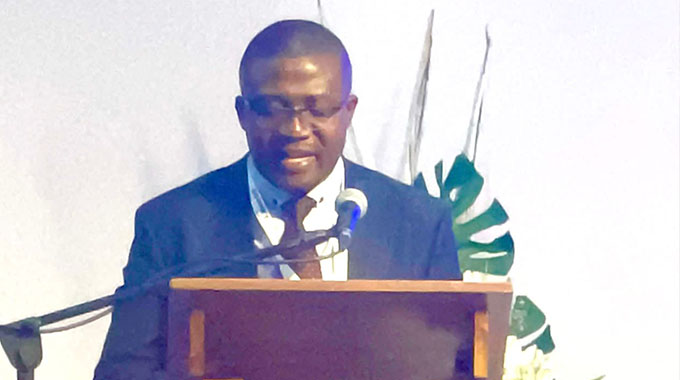NRZ must be viable again, says Minister

Oliver Kazunga, Senior Business Reporter
THE National Railways of Zimbabwe (NRZ) must regain its viability and the on-going restructuring seeks to achieve that goal, a Cabinet Minister has said.
To complement this, the Government has committed to recapitalise the entity as well as expedite implementation of the 2017 forensic audit to restore a sound business model at NRZ, which is a vital cog in the country’s bulk transport system given its cost-effective advantage.
As part of the turnaround drive, Transport and Infrastructural Development Minister, Joel Biggie Matiza, recently directed the NRZ board, which is chaired by Advocate Martin Dinha, to restructure management and facilitate recapitalisation. The restructuring exercise is already underway.
“We are prioritising restructuring and recapitalisation so that the entity becomes viable. Although there have been other suitors in the recapitalisation of the entity, even when the 2017 forensic audit report was there, the forensic audit report has been a growing concern,” Minister Matiza told Business Chronicle.
“Therefore, we have directed the board to expedite implementing the recommendations of the forensic audit.”
While the recommendations of the 2017 NRZ forensic audit report are not yet in public domain, inefficiencies facing the entity have largely been blamed on impropriety, mismanagement and alleged corruption.
A few weeks ago, NRZ acting finance director, Mr Mthandazo Mlotshwa, was sent on indefinite leave pending investigations into allegations of corruption involving US$23 million. The allegations against Mr Mlotshwa among others also include the reported non-delivery of eight vehicles ordered last year from Nissan Clover Leaf Motors and procurement fraud of fuel worth millions of dollars during the past five years.
The company is also facing a serious debt burden and proposals have been made for the Government to take over the obligation. However, Finance and Economic Development Deputy Minister, Clemence Chiduwa, said the debt assumption was premised on NRZ providing a clear roadmap on their recapitalisation strategy.
“The major push was for them to have a clean balance sheet given the interests that were coming from investors.
“For now, we did not get a clear roadmap and hence the debt assumption was not done,” he said in an interview.
Last week, NRZ indicated that it had begun a process of recruiting a leaner top management team by trimming the number of executive directors from six to three as part of the restructuring programme.
This has seen senior managers being retired as part of the restructuring programme to bring in “fresh blood” to revamp the strategic bulk transporter. So far, as a result of the restructuring initiative, former general manager, Engineer Lewis Mukwada, and three other senior executives, namely director corporate services Mr Misheck Matanhire, director marketing Mrs Elector Mafunga, and director operations, Mr Samson Bhuza, have been relieved of their duties.
Mr Joseph Mashika has been appointed acting general manager. When complete, it is hoped that the restructuring programme will save the parastatal $1,2 million annually.
Economic analysts have called on the Government to support NRZ recapitalisation programme in order to revamp the parastatal.
“It is critical that the Government as a major shareholder in NRZ, supports the recapitalisation project by embracing initiatives such as debt assumption so that it attracts potential investors.
“Recently, we read about the Government assuming the NRZ debt, which in my view if that is implemented, it will go a long way in cleansing the entity’s balance sheet while facilitating the turnaround initiative,” said economic analyst Mr Peter Mhaka.
NRZ requires 41 locomotives and 400 wagons to enable it to move more freight. At its peak in the 1990s, the parastatal moved 18 million tonnes of cargo annually compared to less than three million tonnes last year. — @okazunga











Comments